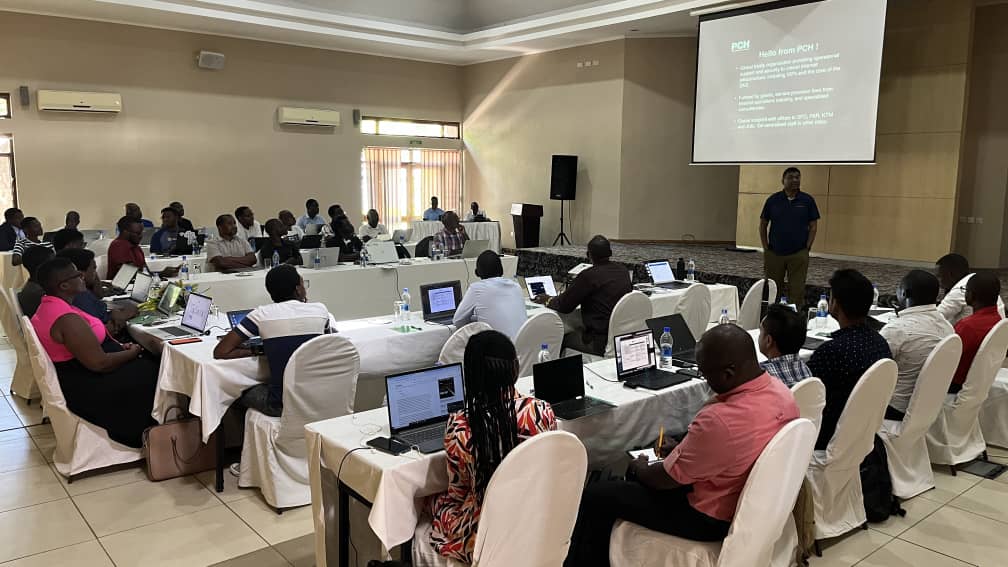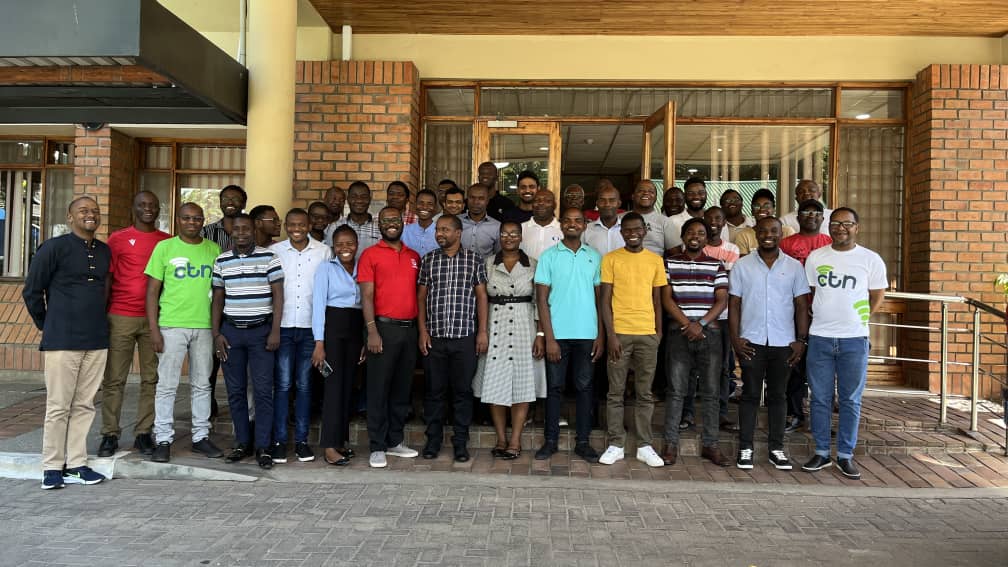Reporting on the MISPA Malawi Internet Infrastructure Development Workshop, Mangochi, 2 - 3 April 2024
Have you ever wondered what strategies could effectively address the challenges of limited internet accessibility and reliability in Malawi?" The Internet Society (ISOC), in collaboration with the Malawi Internet Service Providers' Association (MISPA), the Internet Corporation for Assigned Names and Numbers (ICANN), and Packet Clearing House (PCH) jointly organized a workshop in Mangochi, at Nkopola Sunbird Hotel from the 3rd of April to the 5th of April 2024 held with network operators and service providers responsible for data transmission in Malawi. The main objective of the workshop was to raise awareness on key and important technical and non-technical aspects that ensure the Internet in Malawi is robust, reliable and resilient, and provide a broad understanding of internet infrastructure in Malawi to teach (advise) companies how to improve their services and collaborate with each other towards building a modern Malawi and a modern world (online world, where people communicate, create, and share information and content through digital channels and devices) in the near future.
The agenda of the three days workshop
| Session Hours | Tue, 2 Apr 2024 | Wed, 3 Apr 2024 | Thu, 4 Apr 2024 | Fri, 5 Apr 2024 |
|---|---|---|---|---|
| Arrival 08:00 - 09:00 | Arrival of participants | Arrival of participants | Arrival of participants | |
| Session 01 09:00 - 10:30 |
|
|
|
|
| 10:30 - 11:00 | Coffee break | Coffee break | Coffee break | |
| Session 02 11:00 - 13:00 |
|
|
|
|
| 13:00 - 14:00 | Lunch break | Lunch break | Lunch break | |
| Session 03 14:00 - 15:30 | Visit of venue & Last adjustments (MISPA, ICANN, ISOC and PCH) |
|
|
|
| 15:30 - 16:00 | Coffee break | Coffee break | Coffee break |
I attended this workshop as a representative of the KAIL Lab where I worked, among other things, on research that looked into the “Internet infrastructure and Usage in African Deep Learning Indaba participating countries”. Therefore, at this event I wanted to gather more insights from network operators and service providers in Malawi about challenges facing Malawi’s internet infrastructure. This was a well attended workshop with participants from several countries: Malawi, America, Benin, Rwanda and South Africa. There were 40 attendees representing companies & institutions such as PCH, ISOC, ICANN, Airtel Malawi, TNM, MTL, ctn, INK, Global internet Malawi Limited, MACRA, MUBAS, KUHES, UNIMA who are operating in the digital or educational space. There were three main speakers namely; Nishal Goburdhan from Packet Clearing House (PCH) who was also the guest of honor, Ghislain Keramugaba from the Internet Society (ISOC) who was also the workshop coordinator and Yazid Akanho from Internet Corporation for Assigned Names and Numbers(ICANN). The chairperson of MISPA, Dr. Paulos Nyirenda who chairs the management team for the Malawi Internet Exchange (MIX) opened the workshop with welcoming remarks and declared the workshop officially open.
 The guest of honor, Mr Nishal Goburghan giving his first presentation.
The guest of honor, Mr Nishal Goburghan giving his first presentation.On the first day, Mr. Nishal Goburdhan started by laying out some of the problems that the Malawi Internet is facing (Internet being expensive in Malawi, Lack of a country’s Internet connection, many complaints about network issues and complaints about internet abuse online) and talked about the importance of internet exchange points (IXP) and how to use them to better in the networks in Malawi. His talk helped me understand what an Internet exchange is, the fundamentals of IXP operations, the value of peering, peering coordinators, traffic analysis & peering policies, and how to build strong technical communities.
On the second day, Mr. Yazid Akanho gave an overview of the DNS and BGP services, the number of routers that we have in the world, how they work, how data is transmitted via these routers, and how the recursive server (also commonly known as the DNS resolver, has the important responsibility of seeking requested data and responding to users’ DNS queries) communicates to the routers etc. His presentation helped me to realize the importance of validating and monitoring systems in order to provide excellent services to customers.
On the third day we had an intense discussion where companies were asking practical questions. The discussions were led by Mr. Ghislain Keramugaba. Participants shared their experiences in the field of networking, expressed challenges they have faced and how they solved them, and the tools their companies use in order to provide better services to their customers.
My key takeaways from this workshop includes the idea that we need to take baby steps in order to solve bigger problems, always monitor and validate systems, learn new things by implementing them, always think of how to make systems better and prioritize attending as many workshops and conferences as this is where many opportunities are presented. The workshop ended with us agreeing to collaborate with each other by contributing money to build more exchange points in Malawi, write to Macra requesting for some rules and costs related to internet service providence to be revised and hold more meetings in order to improve the internet infrastructure in Malawi.
 A group photo from the MISPA workshop
A group photo from the MISPA workshop
 KAI LAB
KAI LAB